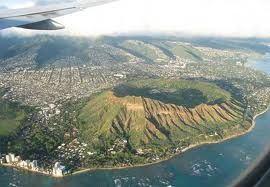Would the fall ever come to an end?
This Week’s Market Sell-Off May Not Be Such a Bad Thing
by Neil Irwin, The New York Yimes
AUG. 21, 2015
The United States stock market was on track for its worst week since 2011 by Friday afternoon, and the Hong Kong market had already reached that milestone. The British stock market has fallen for eight straight days, the third-longest run on record. The price of oil and emerging market currencies around the world continued a swoon that dates to last year.
And it’s about time.
That’s not to minimize the losses investors have incurred, or to say that each of these moves can be completely justified by data, and certainly not to predict what will happen next week or next month. But if you step back just a bit, what has happened in financial markets this week looks less like a catastrophe in the making and more like a much-needed breather when various markets had been starting to look a little bubbly.
Yah think?
(F)lat stock prices in 2015 mask what came before: a remarkable run-up in stock prices in the preceding half-decade. From mid-2009 to mid-2014, stock prices rose much faster than corporate earnings, or gross domestic product, or pretty much anything else you might think of as fundamentals.
In effect, investors became more and more willing to take the risk inherent in owning stocks, so much so that they were willing to pay very high prices for shares relative to the profits of the companies they were buying a piece of. Thus, by definition, they were accepting low returns (low both by absolute standards and even relative to the very low interest rates offered on safer investments like government bonds).
Just over three years ago, in July 2012, investing $100 in the S.&P. 500 captured more than $7 in annual earnings; putting the same money in a 10 year U.S. Treasury bond paid out only $1.55.
In other words, stocks might have been risky, but investors were being compensated nicely for that risk.
…
Even after the sell-off in stocks this week, the same $100 invested in stocks buys only $5.59 in earnings, compared with $2.08 for Treasury bonds. The fact that investors aren’t being compensated very much for taking on risk is, quite logically, making them more skittish when those risks materialize.A mix of interventionist policies from the Federal Reserve and other central banks, and a global glut of investment capital have created a mismatch between the global economy, which has grown glacially, and markets, which have been on fire.
As Josh Brown of Ritholtz Capital Management tweeted on Friday, “2015 is the first year since the recovery began where the real economy is outperforming the financial economy.”


 Hawaii’s natural beauty, warm tropical climate, inviting waters and waves, and active volcanoes make it a popular destination for tourists, surfers, biologists, and volcanologists alike. Due to its mid-Pacific location, Hawaii has many North American and Asian influences along with its own vibrant native culture. Hawaii has over a million permanent residents along with many visitors and U.S. military personnel. Its capital is Honolulu on the island of Oahu.
Hawaii’s natural beauty, warm tropical climate, inviting waters and waves, and active volcanoes make it a popular destination for tourists, surfers, biologists, and volcanologists alike. Due to its mid-Pacific location, Hawaii has many North American and Asian influences along with its own vibrant native culture. Hawaii has over a million permanent residents along with many visitors and U.S. military personnel. Its capital is Honolulu on the island of Oahu.